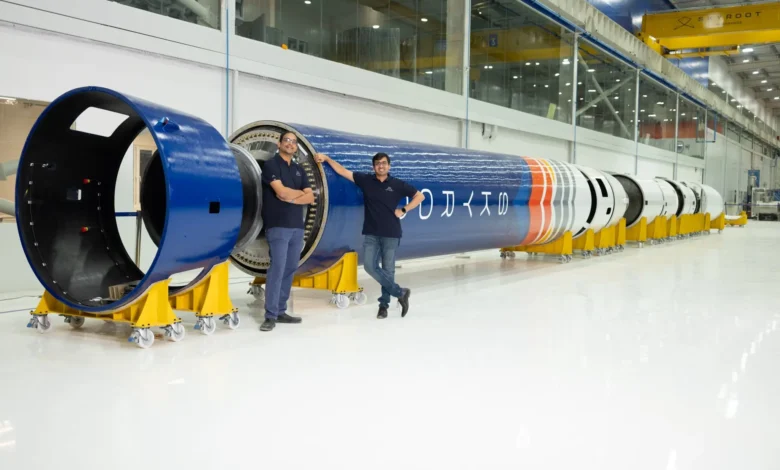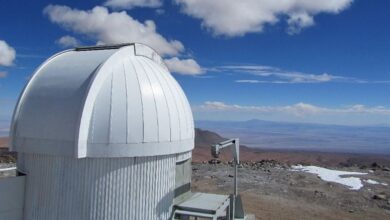
The first orbital-class rocket in India to be privately designed and developed was unveiled by the firm Skyroot Aerospace. The ‘Vikram-1’ rocket is scheduled to launch into space for the first time in the first quarter of 2024. This marks an important turning point for the young space industry in the nation, which has experienced rapid expansion over the past three years as a result of the Indian government’s implementation of space sector reforms. Private companies can now design, develop, produce, and launch their own rockets, satellites, and related services thanks to changes.
It is anticipated that the Indian Government-run ISRO will continue to dominate the Indian space business for the foreseeable future. However, it is anticipated that the proliferation of startups would increase the scope and scale of the Indian space economy.
The co-founder of the company, Pawan K Chandana, displayed the Vikram-1 rocket at Skyroot’s new facility in Hyderabad, Telangana. He added that the company currently employs 300 people and has received over Rs. 500 crore ($62.5 million approximately) in funding. In November 2022, Skyroot launched the Vikram-S on its first rocket, making India the fourth country where private companies have produced and launched rockets. He said that our company has South Asia’s biggest private rocket development facility.
“We’ve named our new facility ‘MaxQ’, it is a technical term denoting the maximum stress and loads that a rocket experiences during its ascent. A rocket has to undergo and push through all this, before it reaches space. Likewise, we would like our team to push ourselves to do extraordinary things in the space sector” he said. Additionally, Skyroot displayed an animated sneak peek of their first orbital launch, which is scheduled for the first quarter of 2024.
The rocket can be assembled and launched within 24 hours
This rocket can be assembled and launched within 24 hours from any location because it is a solid-fuelled rocket and uses relatively simpler technology. This vehicle would require little in the way of launch infrastructure. Additionally, the company is working on improved versions of the Vikram series, which will feature more advanced and effective cryogenic engines. The Vikram-1 vehicle, according to Skyroot, will be able to transport payloads weighing between 290 and 480 kg to various orbits 500 kilometres above the planet.
Recently, the company entered into agreements with French satellite companies, an indication that they are progressively preparing to onboard customer satellites for launch on commercial rockets. A rocket company needs to attract consumers in order to survive. The fact that Skyroot’s main rival, ISRO’s newest rocket SSLV, also transports identical cargo into orbit makes this issue much more crucial. SSLV has made two flights and completed one mission successfully.
The Indian space economy
Dr. Jitendra Singh, India’s Union Minister of State, Prime Minister’s Office, spoke at the event and predicted that the growing influence of the private sector in the space industry would result in a positive synergy between the startups and the government-run ISRO and knowledge sharing. He also said that eventually it would lead to more rocket launches from India and more money being made from them. “The scale of wok is increasing, we can’t meet our future requirements in isolation. The opening-up of the space sector for private firms is a win-win situation” he continued.
According to projections, Dr. Singh stated that by 2040, the Indian space economy—which is currently worth $8 billion—is predicted to reach a value of $40 billion. He added that some estimates of foreign origin put the Indian space industry at $100 billion by 2040. According to estimates, the Indian space sector currently accounts for about 2% of the $450 billion global space economy. Under the auspices of the G20 Summit that India hosted this year, the government-run Department of Space in India also organised a Space Economy Leaders Meeting in an effort to improve cooperation amongst the space agencies of G20 countries.



